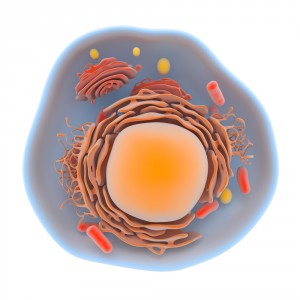Progression in a hard to treat mitochondrial disorder called mitochondrial myopathy was thwarted by Vit B3. In fact there are no current treatments for the most common type of mitochondrial disorder found.

According to Science Daily the B-vitamins are turning out to be important regulators of mitochondrial metabolism:
The authors of the study called it a breakthrough

In a new study entitled “Effective treatment of mitochondrial myopathy by nicotinamide riboside, a vitamin B3,” an international team of researchers show that a vitamin B3 form, nicotinamide riboside, is an effective treatment against mitochondrial myopathy in adults, delaying disease progression. The study was published in the journal Embo Molecular Medicine.
Mitochondrial myopathy is a muscular disease characterized by muscular weakness due to dysfunctional mitochondria, the cells’ organelles responsible for converting energy present within food to energy used by the cells, known as ATP. In fact, mitochondria dysfunction is the most common underlying cause of hereditary metabolic syndromes, and in adults, mitochondrial myopathy is the most frequent type of mitochondria disorders. Currently, however, no treatment is available for these diseases.
In this study, a research team at the University of Helsinki in Finland and collaborators at École Polytechnique Fédérale de Lausanne in Switzerland studied previous reports that showed nicotinamide riboside, a vitamin B3 and NAD+ precursor (NAD+ is a key factor to mitochondrial health) promoted mitochondria biogenesis. The authors hypothesized a positive outcome in the disease if mitochondrial myopathy mice were given nicotinamide riboside.
According to Science Daily the B-vitamins are turning out to be important regulators of mitochondrial metabolism:
Vitamins B have recently been turned out to be potent modifiers of energy metabolism, especially the function of mitochondria. Vitamin B3, (niacin) has been found to delay the signs of aging in animal models.
The authors of the study called it a breakthrough
"These results are a breakthrough for understanding the mechanisms of human mitochondrial muscle diseases and for exploring the efficient treatment options for these progressive disorders of adults. They also highlight the potent role of niacin in guiding mitochondrial energy metabolism," Professor Anu Suomalainen Wartiovaara states.












